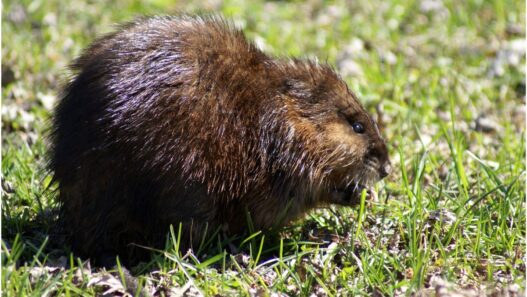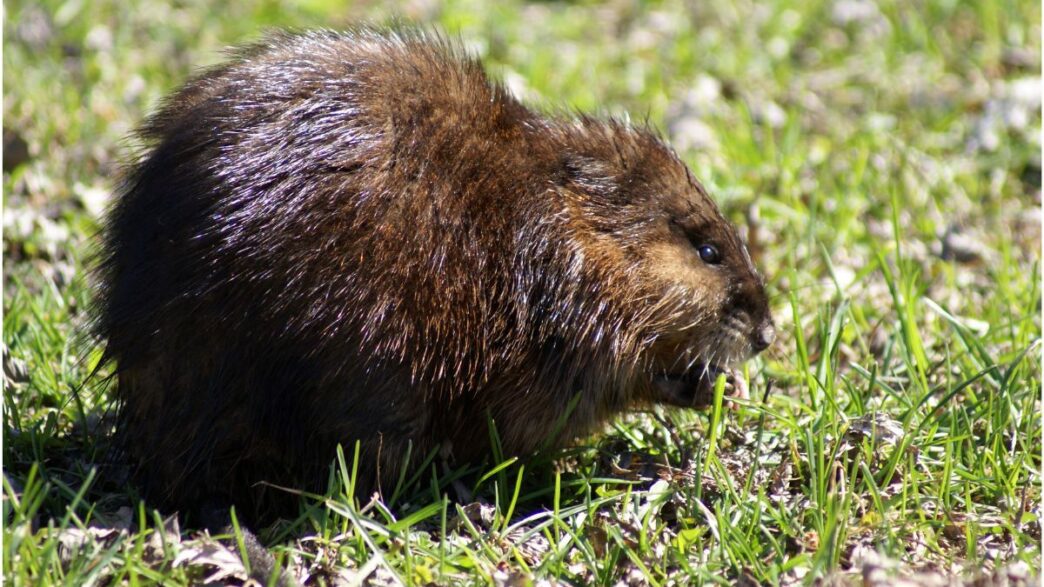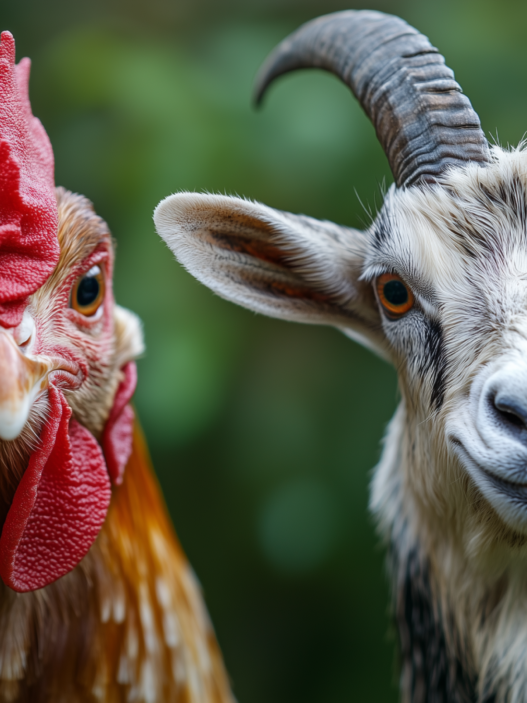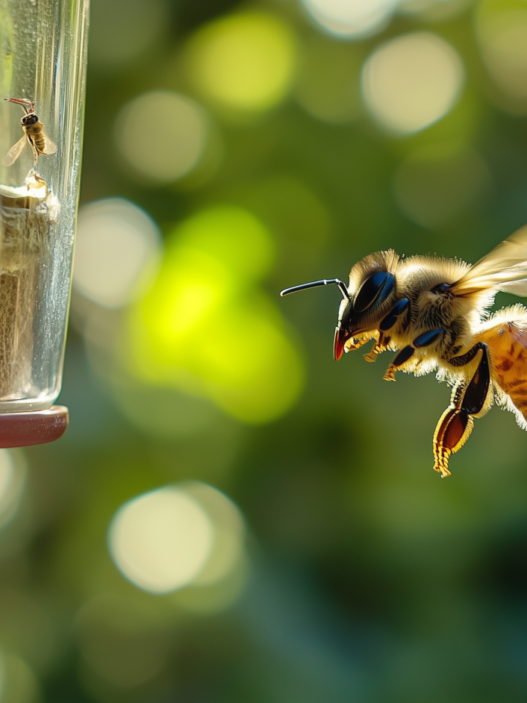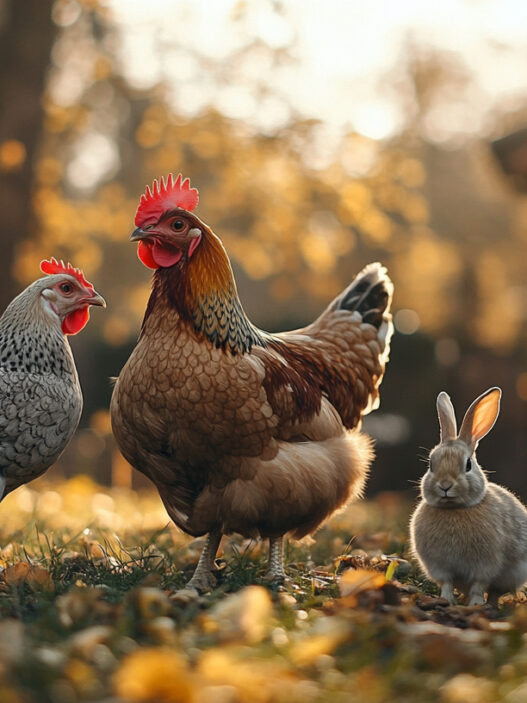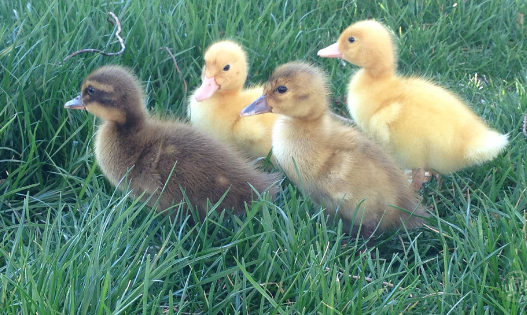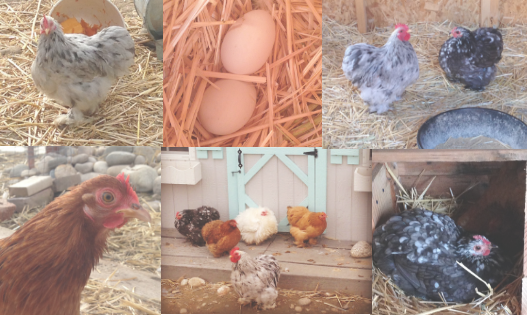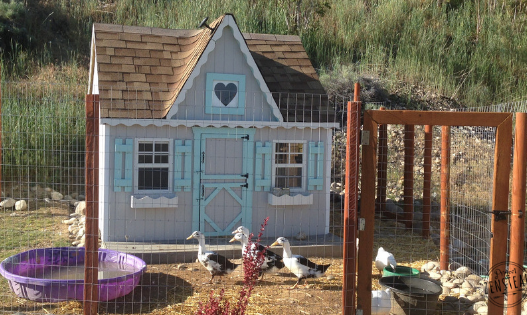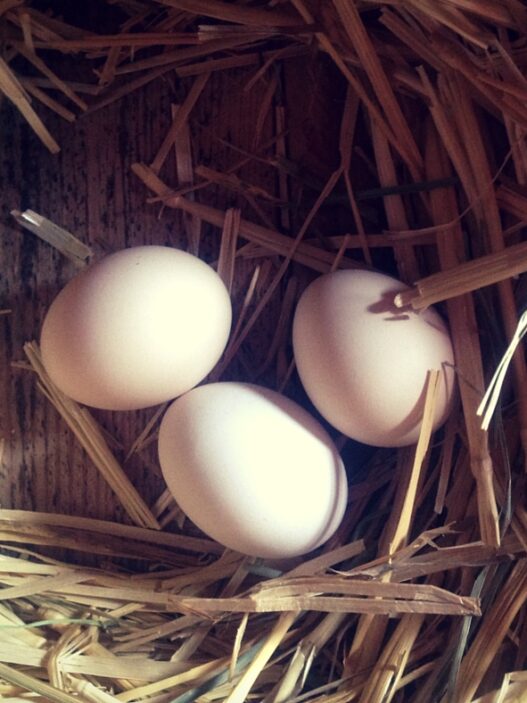Do you often see muskrats sneaking around your coop? And maybe you have the odd chicken vanish now and then (disappearing in thin air)? You may wonder if they’re the ones eating them!
Muskrats are omnivorous rodents. They mostly prefer a plant-based diet (cattails, sedges, and other aquatic vegetation). But when things get out of hand (food is limited), they don’t mind eating chickens as well.
Unfortunately, I know this for sure because I caught them feasting on my feathery pals red-handed in the coop.
Today, I’ll get into the details of:
- Do muskrats eat chickens?
- What other predators eat chickens?

Will muskrats eat chickens?
Yes, muskrats can and will eat chickens (if they don’t find something else), though not with a lot of pleasure!
Let me explain this to you more clearly! These rodents are omnivorous, which means they eat both plants and animals. But their favorite food is plant and aquatic vegetation, and they always vouch for it.
So, if their usual diet (plant-based) becomes unavailable due to an increase in their population, they’ll go ahead and eat your chickens. They might also go after other animals like small fish, insects, and amphibians. Why? Because they can’t die of hunger! Right?
Now, how can you tell if muskrats are the culprits for eating your chickens? Well, it’s very easy. Here’s how you can guess:
1. Living Near An Aquatic Place
If you have a house near an aquatic place (lakes, ponds, rivers, etc), and your chickens are magically disappearing, it could be muskrats!
They live near water and sometimes in it, too. Also, they love digging holes around aquatic places.
So, if you find these holes and observe the plants being chewed up, it’s mostly a 100% possibility that muskrats are around. They are the ones causing trouble for your chickens.
2. Eating On The Spot
Muskrats come and attack your chickens and never take them home. They are known to devour meals right on the spot.
Also, when they are trying to grab your feathery friends, they might leave their own fur behind.
I have quite some experience in this department. That’s why I know that their fur is a mix of dark brown and black colors on the back and sides. The underparts are of lighter shade.
This further proves that muskrats are to blame!
3. Leaving Their Marks
It’s time to put on your detective hat and grab your microscope! If you suspect muskrats are up to something near your chicken coop, they’ll definitely leave behind their footprints.
And you know what? Muskrat prints are pretty easy to spot because their feet have webs, like a duck’s.
So, if you see anything similar, you’ve cracked the mystery wide open, my friends!
4. Attacking At NightTime
Muskrats are nocturnal, which means they do most of their hunting after dark. If you’ve noticed that your chickens go missing at night, muskrats could be the culprits. They’re not exactly stealthy either—they make distinct noises when they’re on the prowl. So, keep an ear out, and you might catch them in the act!
5. Disturbed Nesting Areas
Muskrats, being opportunistic feeders, are drawn to easy prey, and what’s easier than a cozy nest full of eggs or a brooding hen?
If you start seeing nests that have been pulled apart or eggs that are broken and partially eaten, it’s a red flag. Muskrats typically go after the eggs first, as they’re an easy source of nutrition. However, if they’re hungry enough, they won’t hesitate to attack a sitting hen as well. Keep an eye out for signs of a struggle—scattered feathers, overturned nest materials, or nesting boxes that have been dislodged.
What other predators eat chickens?
Apart from muskrats, there are a number of other predators that love your chickens and will eat them (without second guessing). Do you want to know who they are and how they smartly approach their target? Let’s begin!
1. Foxes
Foxes are very clever animals and are way faster than it seems! They do their hunting at night (Just like muskrats).
If you find chickens missing from your coop, it could be a sign that a fox paid a visit. They have a habit of killing more than they can eat in one go.
What’s interesting is that foxes bury the extra food they can’t finish in a secret closet underground.
And there’s more! These cunning animals have a strange eating style. They don’t bother chewing bones. In fact, they just gobble everything up whole. That’s why you may spot feathers lying around that are big proof that a fox enjoyed your chickens.
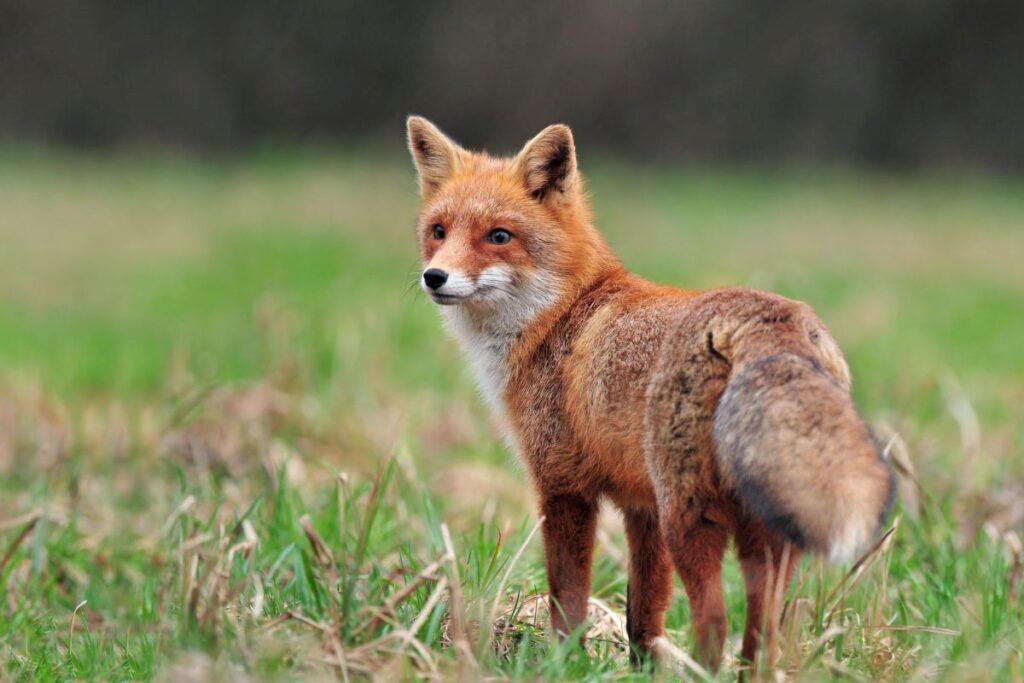
2. Birds of Prey
Meet the sky hunters – hawks and owls. These birds will steal away your chickens (especially the smaller ones), and you would not even know!
Thanks to their superhero-like vision, they can spot things from way up high and plan their next moves.
Also, they don’t make a lot of sound when flying. This is an added advantage when they’re trying to catch your chicken.
Both hawks and owls have strong talons (sharp claw-like things on their feet) and beaks. These are their tools for catching and gripping their yummy chickens.
And guess what? Owls are night-shift workers. They like to hunt in the dark (more like muskrats).
Hawks, on the other hand, prefer to keep things going when the sun is up. Either way, your chickens will always be in danger.
3. Weasels
Let’s talk about weasels. These small (but tricky predators) can be a real challenge for your chickens. Even though they’re tiny, they’re super good at getting into small spaces around the coop. They find their way into anything without anyone noticing!
They can take on animals much bigger in size than them, and sadly, chickens don’t stand a chance against them!
Their strategy involves wrapping around chickens and biting the back of their necks. What’s more? They can wipe out an entire flock in just one night.
I know it’s a tough situation, and my sympathy goes out to you.
4. Raccoons
Raccoons are really clever and can figure out how to get anything to eat! Chickens are innocent and are pretty easy targets for them.
Interestingly, they have hands that work almost like human beings. They can grab, twist, and turn things with their fingers. This makes them super good at opening doors and latches. Mind you, your chicken coop isn’t safe!
When it’s dark, they get active and love exploring. Your coop might be on their list of places to check out during their nightly adventures.
They usually leave puncture marks near the head of your chickens and leave them half-eaten on the spot. This is the very same thing muskrats do!
5. Snakes
If you see small holes in your chicken eggs (almost like tiny punctures), this is a telltale sign that snakes are getting to them. But how to be so sure? If you don’t know already, snakes are attracted to eggs. This makes the chicken coops the best place to have a meal! We’ve prepared a whole article about snakes and the signs that they eat chicken eggs.
Protecting Your Coop
So, yes—muskrats can and will eat chickens, though it’s usually a last resort when their preferred food sources are scarce. But they’re not the only predators you need to worry about. From foxes to weasels, there are plenty of other creatures that would love to make a meal out of your flock.
Strengthen your coop, secure any gaps, and consider installing motion-activated lights or cameras to deter nighttime visitors. The more barriers you put in place, the safer your chickens will be.
Have you had any run-ins with muskrats or other predators? What worked (or didn’t work) for you? Share your experiences in the comments below—I’d love to hear how others are protecting their flocks!
